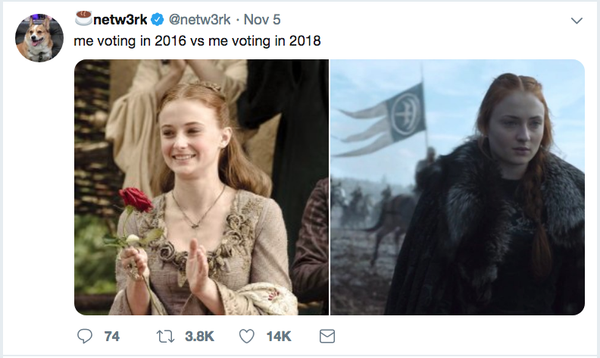The night that Trump won, I was watching CNN, curled onto a couch in the Stanford Daily building.
By 9PM, I recognized the inevitable. I shouldered my backpack and headed into the cool night. I passed the Women’s Community Center, where they had bought a piñata and labeled it “Patriarchy.” But now, the center’s lights revealed only a few somber students and Patriarchy unsmashed.
I wondered how it had come to this—how, after so many months of lampooning Trump and criticizing his blatant racism, Islamophobia, and general offensive manner, could he now be the president-elect? I wondered how Trump had gone from a sideshow joke to a living nightmare.
And so, let us relive the past eighteen months. Let us explore the echo chambers that led to complacency, the subconscious bias that made reconciliation impossible. Though I will write more on Trump’s substantive implications and policies later, let us begin with the zeitgeist that led up to this moment.
When Trump first announced his candidacy, I thought it was ridiculous that a presidential candidate could begin his campaign with a rambling speech, insult a significant portion of the population, and still come out alive.
And, for a while, Trump was a great punchline. The mood was generally lighthearted; “did you hear the [X ridiculous thing] that Donald Trump said” became common lunchtime conversation fodder. As his campaign gained traction in the primaries, “moving to Canada” jokes grew more frequent. I may or may not have contributed to the crash of the Canadian immigration site when, on the night that Trump cinched the Republican primaries, my friends and I jokingly Googled “how to move to Canada.”
Trapped in my bubble, I could not imagine how people could take Trump seriously because I knew no one who did. Perhaps this bred in me a sort of implicit complacency—even my Republican friends openly disavowed Trump.
I was eased, too, by the deep passion with which my friends and communities resisted him. As Trump’s insults grew more frequent and more personally offensive, our distaste for him increased in even greater measures. I read article after article that eloquently debunked and decried each of Trump’s statements. Given his further lack of knowledge about legal issues and foreign policy, I could only describe my feelings as mixed disgust and dismissal—sure, I was disgusted at nearly everything I heard, but I dismissed his ridiculous proposals as far-fetched and unsubstantive.
I did not realize, then, that I was living in an echo chamber. Of course I recognized that conservative viewpoints existed—I had tried to understand the other side by reading conservative articles—but confirmation bias is powerful. Because I found the articles unconvincing, I subconsciously assumed that no one else would be convinced, either. I wrote off pro-Trump Internet comments as fringe cases of “trolling.” I unfollowed two people on social media when they posted pro-Trump messages.
Meanwhile, Trump was winning primaries. Rising in the polls. And though I thought of him with the utmost distaste, I could still not imagine a world in which he could win.
And that was precisely the problem.
Because for millions of other Americans, they, too, lived in echo chambers—except that they echoed the opposite messages. John Oliver’s season finale (especially at 14:15) explains the phenomenon quite well: where my news feeds present me with Times articles that list every insult that Trump has made, others' feeds list the scandals of Hillary Clinton. And, as many writers before me have pointed out, we live in a world in which people now deal with vastly different sets of information.
However, I go one step further—my argument is that, even if the people whose Facebook feeds are filled pro-conservative articles were forced to read liberal articles, our bias will still reinforce existing views. Indeed, research supports this: corrective information paradoxically makes people’s current opinions stronger. We read only what we want to know.
Thus, when I tried to read some conservative articles for context, I could not help but dismiss them as unconvincing. Simply exposing oneself to other viewpoints is not quite enough.
We need something more. We need more than a one-sided, halfhearted reconciliation. We need more than a “fine, I’ll hear you talk for a while, but then I’ll ignore you and repeat my points again.”
Because not engaging with each other makes for terrible debate. And it makes for a terribly divisive America.





















